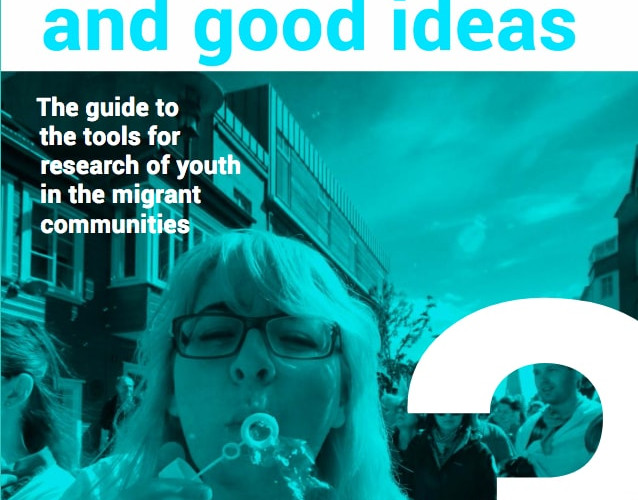Chapter publication: "Young innovators in the digital era".
- Alicja Pawluczuk
- Aug 24, 2017
- 3 min read
Over the last two years, I have been contributing to a project called: "Leaders in minority organisations. Improving organisational standards of Polish diaspora organisations working on activisation of youth". In our recently published guidebook:"The guide to the tools for research of youth in the migrant communities", I share some of my thoughts on digital youth work.
Project description
The aim of the project is to research the role of young Polish migrants in Europe, particularly in Iceland, Hungary and Scotland. As a an active member of Polish Cultural Festival Association, I had an opportunity to take part in this exciting initiative.
Project "Leaders in minority organisations. Improving organisational standards of Polish diaspora organisations working on activisation of youth" is a joint initiative of four organizations from four EU countries. The main objective of this project is "to increase the potential of Polish organisations working in the field of civic education of young representatives of the Polish community in EU countries through the exchange of good practices, joint trainings of the staff of these organisations and development of new solutions to support work of these organisations.

Within the last 10 years, over 1,8 million of Poles have left Poland. According to the Central Statistical Bureau, by the end of 2013 most of them inhabited Great Britain (555 000), Germany (415 000), Ireland (140 000) and in Italy, the Netherlands and Spain (around 85 000 in each). Despite such high numbers of the Polish communities in the EU countries, Polish diaspora organisations working in the field of education are not very active when it comes to civic education and activisation. This leads to a shortage of initiatives aimed at promotion and encouragement of civic participation of the Polish youth living abroad, their active citizenship and intercultural dialogue. As part of a 24-month set of activities, there are planned joint trainings of staff, development of three intellectual products targeted at organizations working with young members of Polish community abroad, as well as dissemination events.
The products of this project will be three widely available publications on:
a) diagnosis of a local community with migrant/minority groups
b) creating the strategy of organisational growth and management for an organisation working with local diaspora
c) innovative ways of activisation and engagement of the young Polish diaspora through civic education

The project is in line with the specific objectives of the Erasmus Programme + for young people, in a particular it contributes to:
- promotion of participation of young people in democratic life in Europe, active citizenship, intercultural dialogue,
- improvement the quality of the educational offer for young people.
My contribution
Over the last two years, I have been actively involved in all stages of the project. Starting with the initial research planning and then community engagement. In 2016, I facilitated two interactive workshops - the first one for young migrants (Edinburgh), second one for youth practitioners (which I discuss here). This provided me with a unique experience of discussing digital youth engagement challenges and workers perspective from different countries.

In my chapter "Young innovators in the digital era", I describe the changing dynamics of youth work in the digital era. I also emphasise the active role of young digital citizens and encourage your worker to tap into youth's digital expertise. I also introduce the concept of 'group safety agreement' as a collaborative approach to establishing group rules and roles while working in digital youth setting.
"The guide to the tools for research of youth in the migrant communities" is available to download online ( original version is in Polish, but English version is also available).









Comments